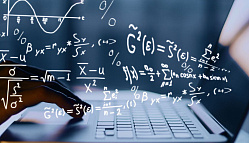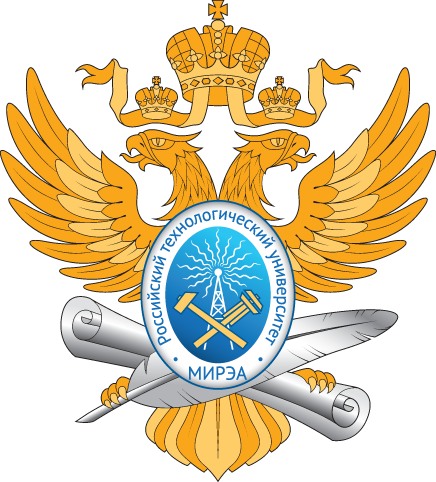01.04.02 Applied mathematics and information science

The program combines instruction in fundamental mathematical training with training in computer modeling, algorithm development and programming. A strong infrastructure of training and research laboratories permits formulating and solving complex research problems and efficiently incorporates research work in the educational process. Students are expected to develop their potential by doing independent research (“pre-graduate program”) and undergoing extensive practical training.
Level of education:
Master’s degree
Form of training:
Full-time (daytime)
Venue of training:
Moscow
Entrance exams:
— Higher mathematics
Programs, specializations:
Mathematical modeling

The training program includes mathematical simulation of complex dynamic objects of the technological, biotechnological and socio-economic world. Cooperation with the Institute’s strategic partners (enterprises and research organizations) enables our alumni to integrate quickly and effectively in their employer’s business or line of activity.
Good mathematical training combined with skills in computer modeling, algorithm building and programming permits our alumni:
- to independently solve the problems at hand in the analytical departments of various companies
- to develop and set tasks of applied nature for programmers
- to formulate and resolve new tasks emerging in the operation of sophisticated information technology
- to be engaged in development of applied software
- to create DBMS for various purposes
- to participate in the development of integrated information and mathematical software systems for various fields of activity
Good mathematical training combined with skills in computer modeling, algorithm building and programming permits our alumni:
- to independently solve the problems at hand in the analytical departments of various companies
- to develop and set tasks of applied nature for programmers
- to formulate and resolve new tasks emerging in the operation of sophisticated information technology
- to be engaged in development of applied software
- to create DBMS for various purposes
- to participate in the development of integrated information and mathematical software systems for various fields of activity
Alumni can be employed as
- systems analyst in banks, industrial corporations, and high-level government structures in industry management and manufacturing
- algorithm builder and software developer for complex information systems
- database and expert system designer
- developer of mathematical models for complex technical systems
- developer of mathematical support for information processing and control shaping in complex technical systems
- developer of mathematical software for information processing in multimedia databases
- researcher in applied or computational mathematics or in theoretical information science
- instructor in mathematics, applied and computational mathematics, and information science
Program subjects
- Continuous mathematical models
- Modern computer technologies
- Discrete mathematical models
- Special modeling/simulation techniques
- Mathematical models of mechanics
- Mathematical image recognition models
- Encoding methods
- Methods of solving ill-posed problems
- Methods of solving mechanical problems
- Mathematical models of automatic control theory
- Mathematical models of ultrahigh-frequency devices
Department of Higher Mathematics
- Educational Activity
-
Institutes
- Institute of Information Technologies
-
Institute of Artificial Intelligence
- About the Institute
- Institute Administration
- History of the Institute
-
Training programs
- Bachelor's Degree Programs
-
Master's Degree Programs
- 01.04.02 Applied mathematics and information science
- 09.04.01. Informatics and computer engineering
- 12.04.04 Biotechnical systems and technologies
- 15.04.04 Automation of technological processes and production
- 15.04.06 Mechatronics and robotics
- 27.04.03 System analysis and management
- 27.04.04 Engineering system control
- Infrastructure
- Alumni
- Contacts
- Institute for Cybersecurity and Digital Technologies
-
Institute for Advanced Technologies and Industrial Programming
- About the Institute
- Institute Administration
- History of the Institute
-
Training programs
-
Bachelor's Degree Programs
- 09.03.02 Information systems and technologies
- 11.03.04 Electronics and nanoelectronics
- 12.03.05 Laser technology and laser techniques
- 15.03.01 Mechanical engineering
- 22.03.01 Materials science and technology
- 27.03.01 Standardization and metrology
- 28.03.01 Nanotechnology and microsystems engineering
- 29.03.04 Decorative material working techniques
- 54.03.01 Graphic design
-
Master's Degree Programs
- 09.04.02. Information systems and technologies
- 11.04.04 Electronics and nanoelectronics
- 12.04.02 Optical engineering
- 15.04.01 Mechanical engineering
- 22.04.01 Materials science and technology
- 27.04.01 Standardization and metrology
- 29.04.04 Decorative material working techniques
- 54.04.01 Graphic design
-
Bachelor's Degree Programs
- Infrastructure
- Alumni
- Contacts
- Institute of Radio Electronics and Informatics
- Institute of Management Technologies
- Lomonosov Institute of Fine Chemical Technologies
- Institute of International Education
-
Mega-Laboratories
- Industry 4.0: Digital Robotized Production center
- Laboratory of Intelligent Autonomous and Multi-Agent Robotic Systems
- Laboratory of Analytic, Modeling, Design and Digital Prototyping Technologies
- Motion Capture Laboratory
- Center of Innovative Technologies in Microelectronics
- Catalytic and Mass Exchange Processes center
- Cell Technologies Megalaboratory operating on the basis of the Department of Chemistry and Technology of Biologically Active Compounds, Medical and Organic Chemistry named after N.A. Preobrazhensky
- Center for Cybersports Robotics
- Centre for Additive Polymer Technologies
- Elastomers. Thermoplastics. Technologies Educational and Research Center operating on the basis of the Department of Chemistry and Technology of Elastomer Processing named after F.F. Koshelev
- General Biotechnology Megalaboratory
- Immersive Technologies Laboratory
- Import Substitution of Information Technologies Educational and scientific testing complex
- Laboratory for the Development and Transfer of Microfluidic Technologies (DTMT)
- Mobile Robotics University Laboratory
- Rare and Precious Metals Research and Technological Center operating on the basis of the Department of Chemistry and Technology of Rare Elements named after K.A. Bolshakov
- Research and Educational Center for Biosynthesis, Isolation and Purification of Monoclonal Antibodies (Generium)
- Smart Production Systems Educational and Scientific Center
- Techno-coworking
- Technocoworking
- Radio electronic Technologies Megalaboratory
- Situation center
- Scientific and Educational Center for Medical Radiology and Dosimetry
- Educational and Research Center for Space Monitoring ("CosMoCenter")
- Laboratory of Geographic Information Systems and Technologies
- Bachelor's Degree Programs
- Master's Degree Programs
- Additional Education Programs
- Physical Education and Sports
© 2024 MIREA - Russian Technological University
